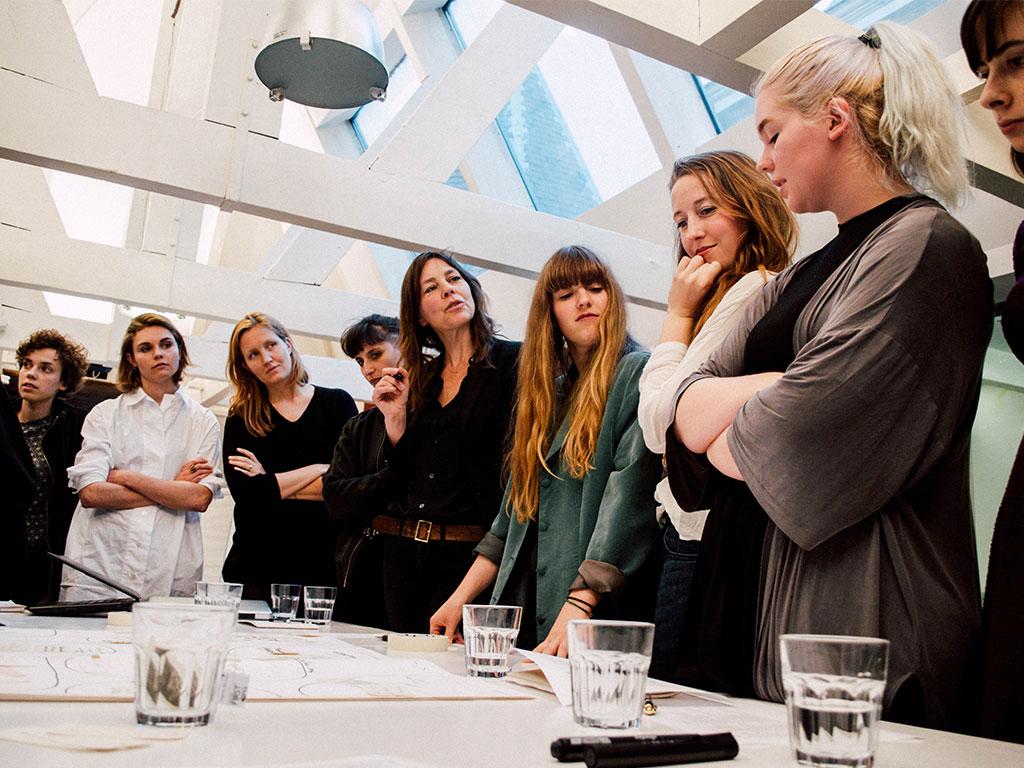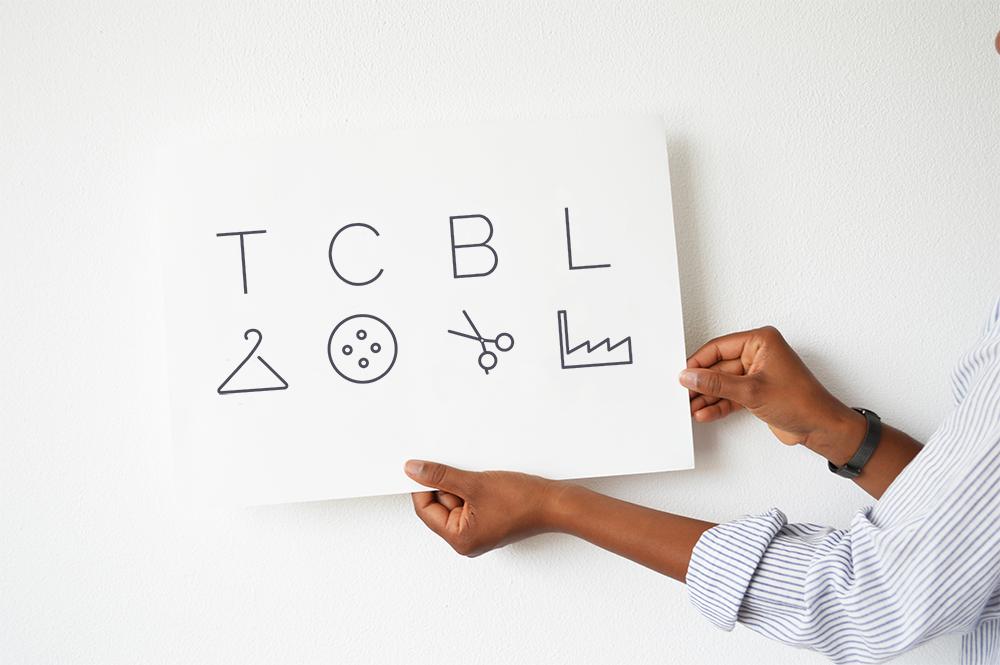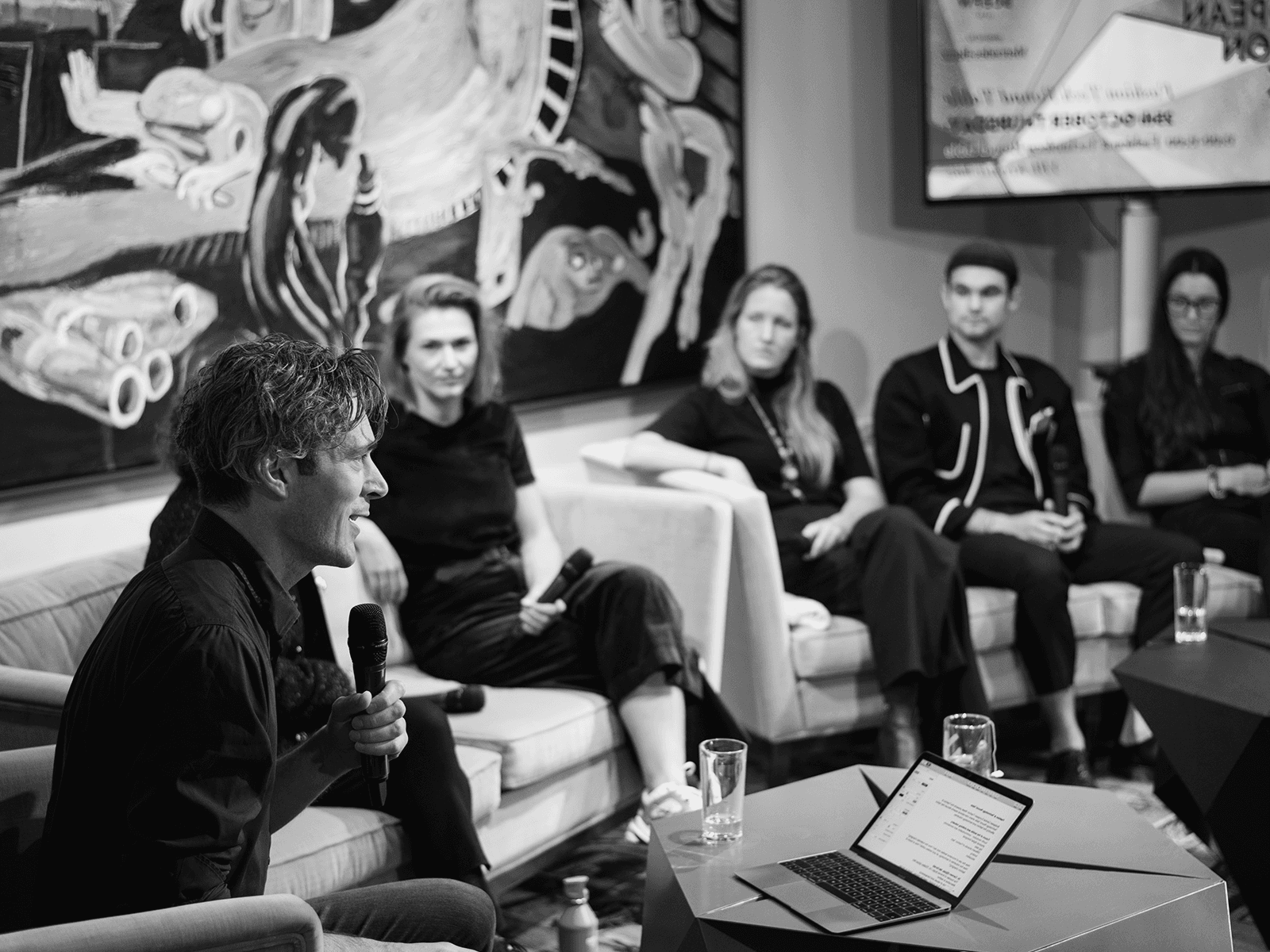Focus on the unethical and environmentally unfriendly realities of the current textile and clothing industry has been a topic of conversation for some time now. To combat this, several initiatives focus on public awareness and behavioral change: buy and use less textiles, different textiles, better textiles. But what is better?
Organic materials might not be sustainable or fair trade, and fair trade does not necessarily mean good quality. And if we buy less, does that mean the creators earn less? Meanwhile, emerging technologies are knocking the industry’s closed doors: from digital design and production to 3D body scanning.
In the recently established TextileLab Amsterdam—a physical workplace at the top of the Waag building on the Nieuwmarkt—we're grappling with these problems and changes within the industry. With the help of design students, researchers, artists, engineers and professionals from the fashion world, we're aiming to not only break open, examine, and understand existing (closed) systems, but also begin work on alternative systems.
Alternative stories
But what do we really want the industry to look like? What are the alternatives to fast-fashion, emphasis on marketing, and “yourself as brand?” What do we want that the clothes that we wear to say? Now that Lidewij Edelkoort has announced that “fashion is dead”—what's the story? Waag was on the lookout for like-minded people together to question and envision the potential future of this industry. In collaboration with Mascha van Zijverden (ArtEZ), we organized a round-table workshop over two evenings during which students from various academies in the Netherlands, alumni, and so called experts came together.
Photo's of both evenings can be found here.
Possible future
In the first session, we discussed the subjects the fashion design (or theory) students and alumni are concerned about, what they think is important, and what trends they see affecting the world of future fashion professionals. Should it be produced locally? What sorts of solutions does technology provide? What is the role of craftsmanship? An interesting mix of interests and work amongst our group made for a lively discussion and variety of input. We talked about everything from the use of virtual reality, to constructing garments without sewing machines, to developing new materials in a wetlab or fablab and more conceptual staring points from which to look at fashion clothing and the industry. With this in mind, we subsequently discussed the future fashion professional and what his or her knowledge, skills, and passions might be like (head, hands, heart).
The second session shifted towards people from the fields of technology, craftsmanship, education, fashion and policy. The vision of the future landscape of the industry was completed, and the outline of the future of fashion professionals prompted a discussion about the current system of education and student work. The evening ended with one-on-one conversations during which the students could submit their questions to experts in the field.
Next steps
The most important outcome of this round-table workshop? That all participants are not only eager to question and change the current system, but also question and change themselves. And this was only the first meeting.
On 6 September, we're officially opening TextileLab Amsterdam. In the meantime, we are busy preparing the public events, the open evenings and the TextileLab Amsterdam Academy program, which will also start in September. Within this program, we're providing various six-month workshops in the field of digital fabrication, open design, craftsmanship, and more.


